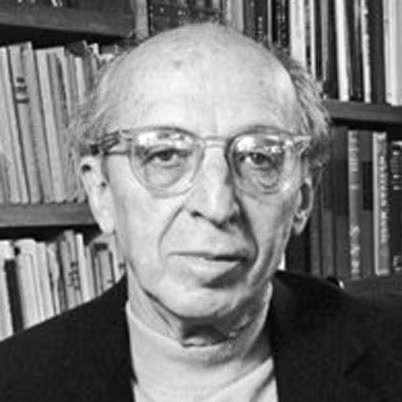
Table of Contents
Who Was Aaron Copland?
Aaron Copland, born on November 14, 1900, in Brooklyn, New York, emerged as one of the 20th century’s most influential composers. His music, a unique blend of classical, folk, and jazz idioms, became a defining characteristic of American classical music. Copland’s works, such as Fanfare for the Common Man, El Salón México, and Appalachian Spring—the latter of which earned him a Pulitzer Prize—remain iconic. In addition to his classical compositions, Copland also won an Academy Award for his film scores. He passed away on December 2, 1990, leaving a lasting legacy in both the concert hall and film industry.
Early Years and Travels
Copland was the youngest of five children born to Jewish, Eastern European immigrant parents. From an early age, he displayed a keen interest in music, particularly the piano, and was mentored by his older sister. He furthered his musical education under the guidance of Rubin Goldmark in Manhattan, where he also attended classical performances. At the age of 20, Copland traveled to Fontainebleau, France, to study composition with the renowned Nadia Boulanger.
A Visionary Composer
After completing his studies in Europe, Copland returned to the United States in the mid-1920s. During this time, he was commissioned by Boulanger to compose an organ concerto, which resulted in his Symphony for Organ and Orchestra. The piece premiered on January 11, 1925, with the New York Symphony Society, conducted by Walter Damrosch.
Throughout the following decade, Copland produced several compositions that would cement his reputation as a leading composer. He focused on creating music that resonated with an “American” identity, incorporating elements of jazz, folk music, and Latin American influences. Key works from this period include Piano Variations (1930), The Dance Symphony (1930), El Salón México (1935), A Lincoln Portrait (1942), and Fanfare for the Common Man (1942). His collaboration with choreographer Martha Graham led to the composition of Appalachian Spring (1944), which won him the Pulitzer Prize the following year.
In addition to his composing, Copland was an accomplished author. His first book, What to Listen for in Music (1939), was followed by Our New Music (1941) and Music and Imagination (1952), the latter inspired by his Norton Lectures at Harvard. Copland also taught at the New School for Social Research, further influencing the next generation of musicians.
Oscar for The Heiress
Aaron Copland was a distinguished composer not only for classical music but also for film scores. His contributions to cinema included Of Mice and Men (1939), Our Town (1940), and The North Star (1943), for which he received Academy Award nominations. He ultimately won an Oscar for his score for The Heiress (1949). Over a decade later, in 1961, Copland composed a stark and unsettling score for the controversial film Something Wild. Selections from his works continued to be featured in various TV series, commercials, and films, including Spike Lee’s He Got Game (1998).
In his later years, Copland adopted a European-derived tonal system in his compositions. By the 1970s, he had stopped composing new works, instead focusing on teaching and conducting.
Death
Aaron Copland passed away on December 2, 1990, in North Tarrytown, New York, at the age of 90. In his later years, he received numerous accolades for his lifetime achievements. Copland collaborated with Vivian Perlis on a two-volume autobiography, Copland: 1900 Through 1942 (1984) and Copland Since 1943 (1989). A comprehensive biography of his life, Aaron Copland: The Life & Work of an Uncommon Man by Howard Pollack, was published in 1999. An extensive collection of Copland’s works, including personal letters and photographs, is preserved at the Library of Congress.
